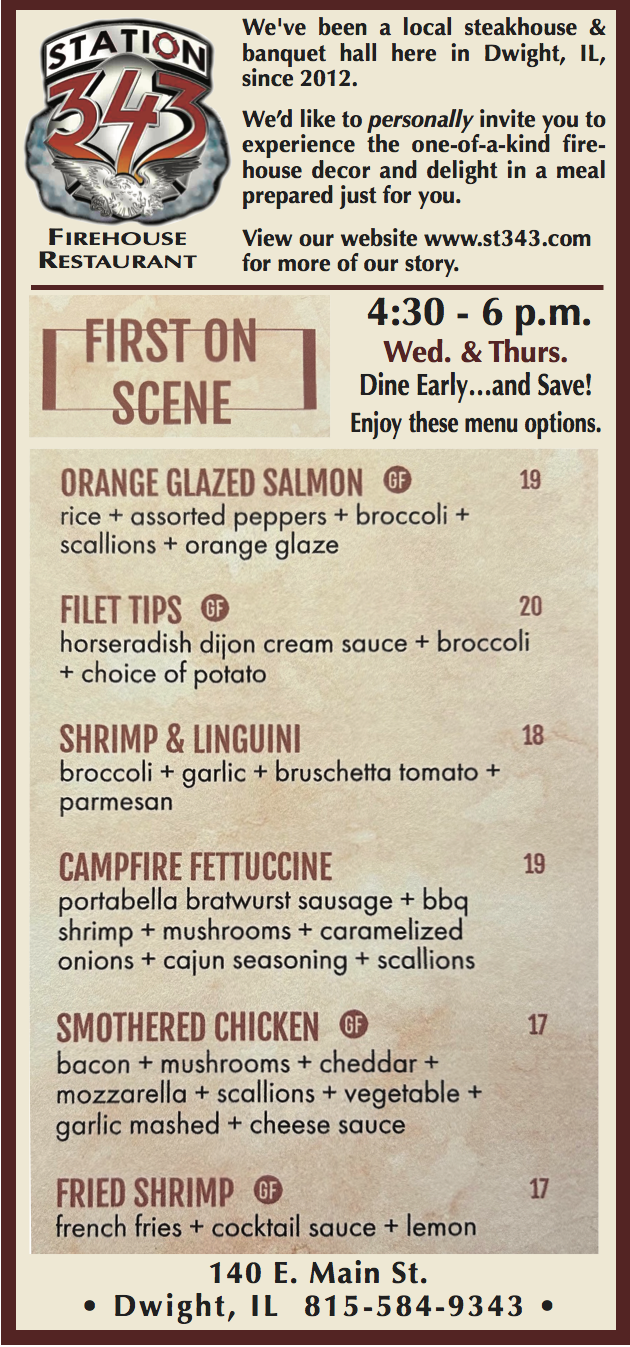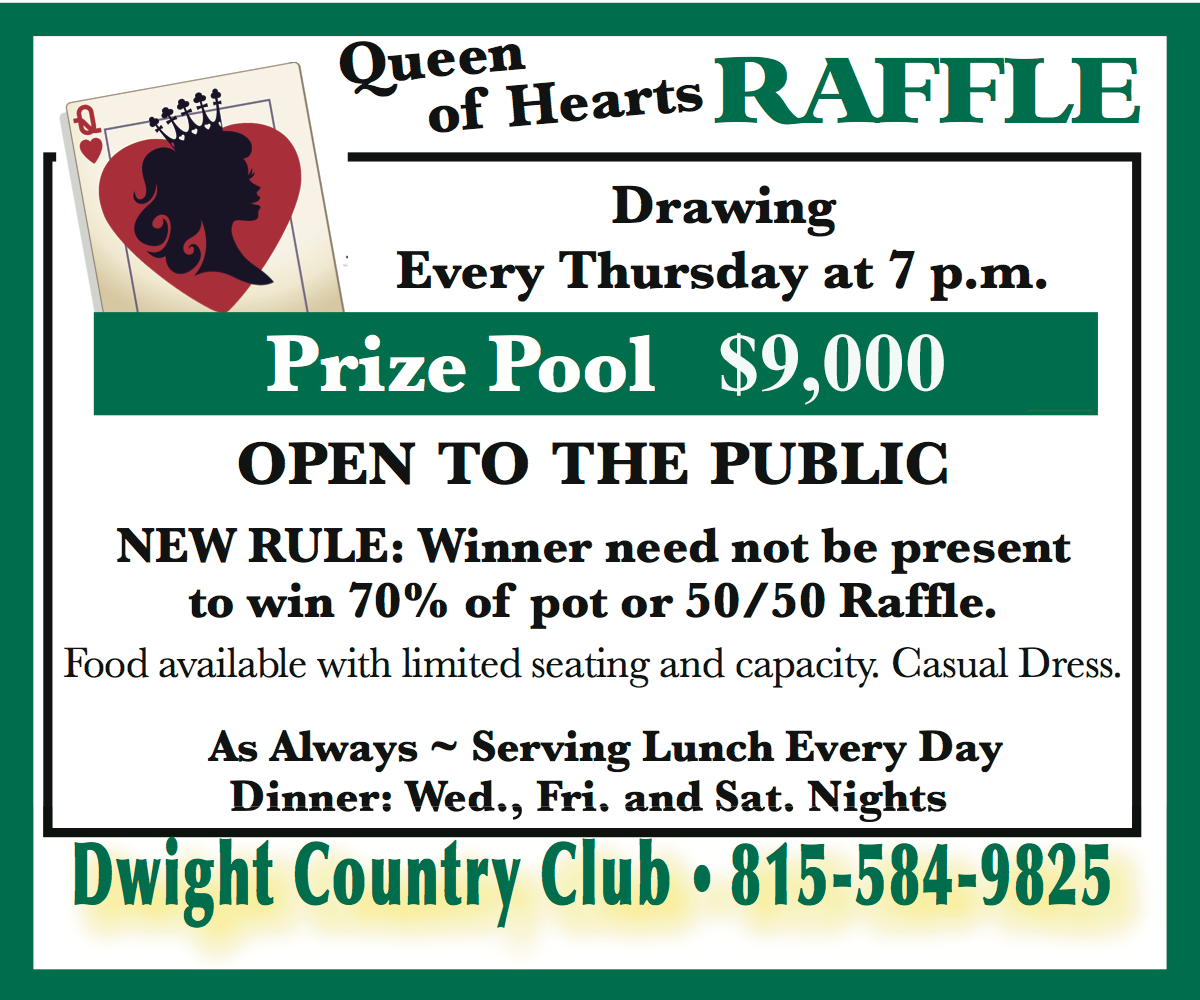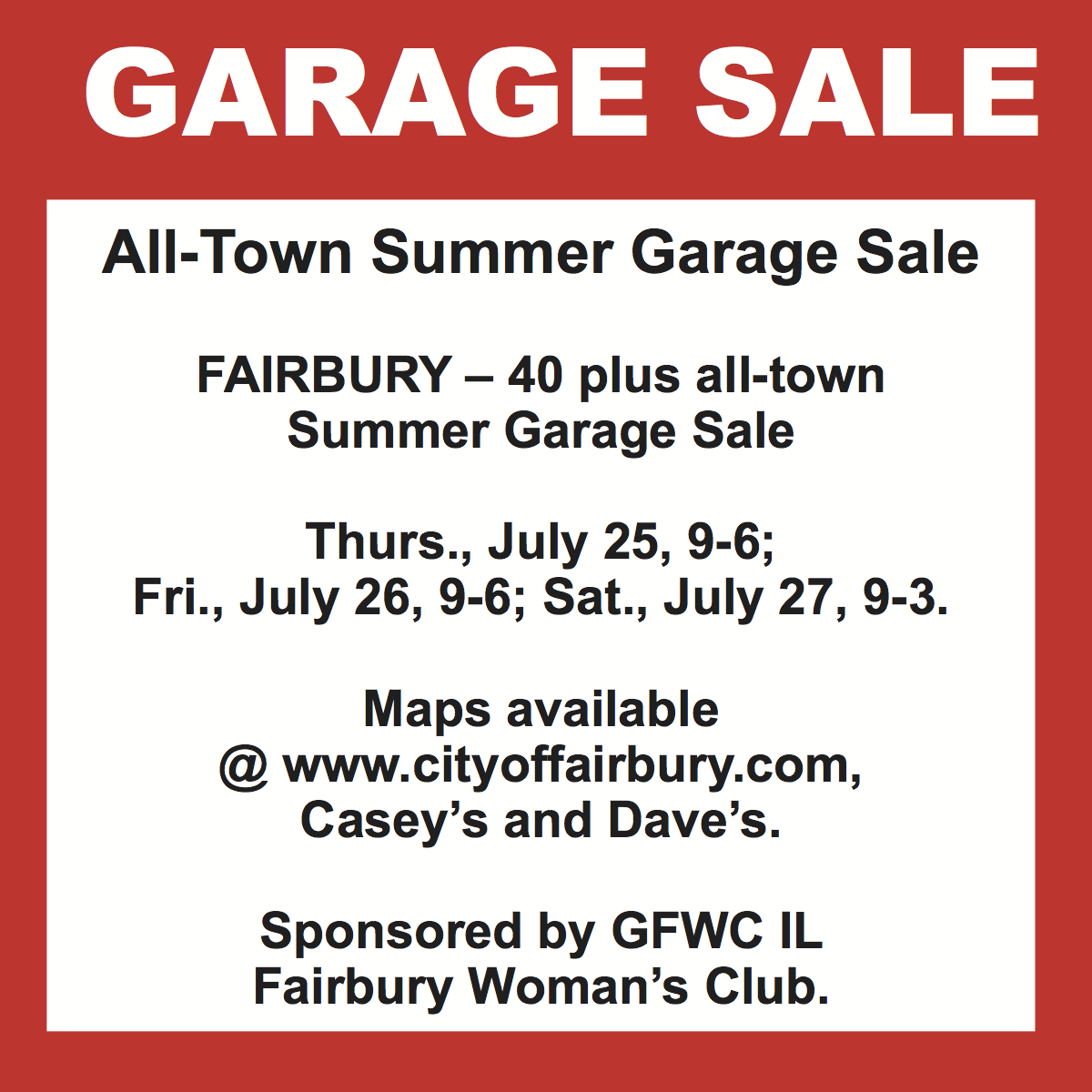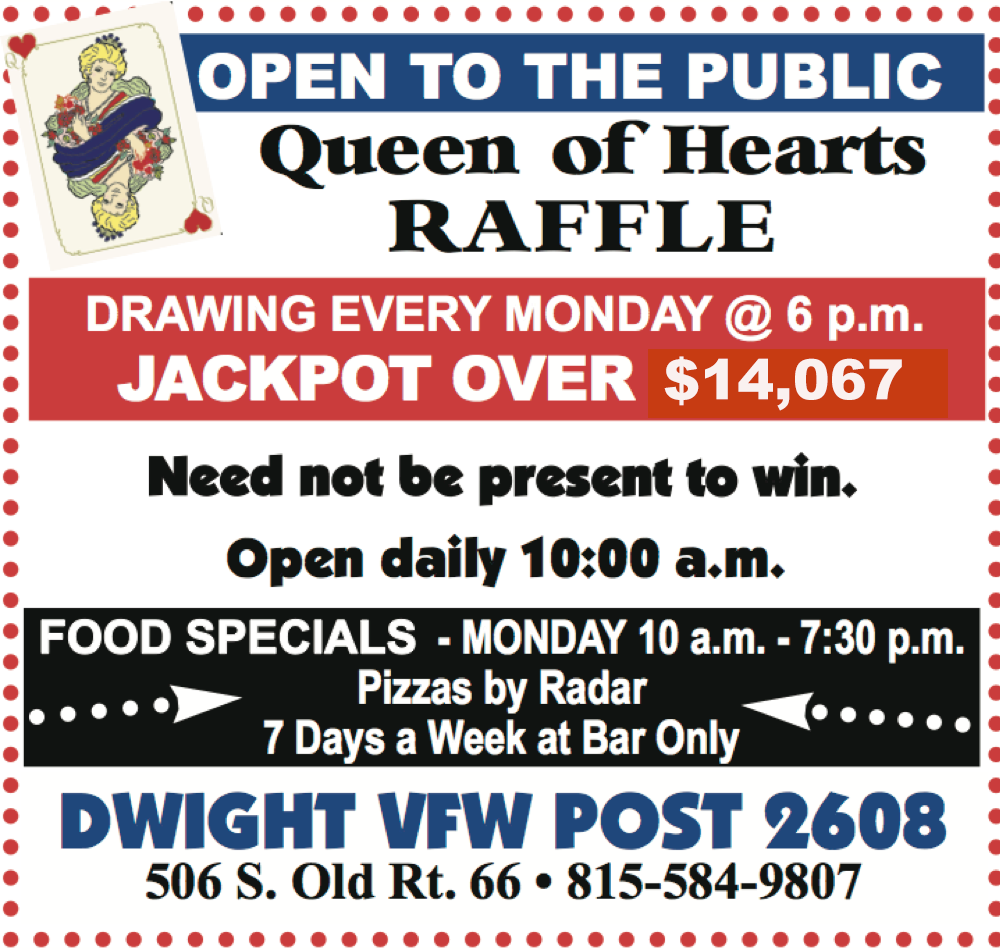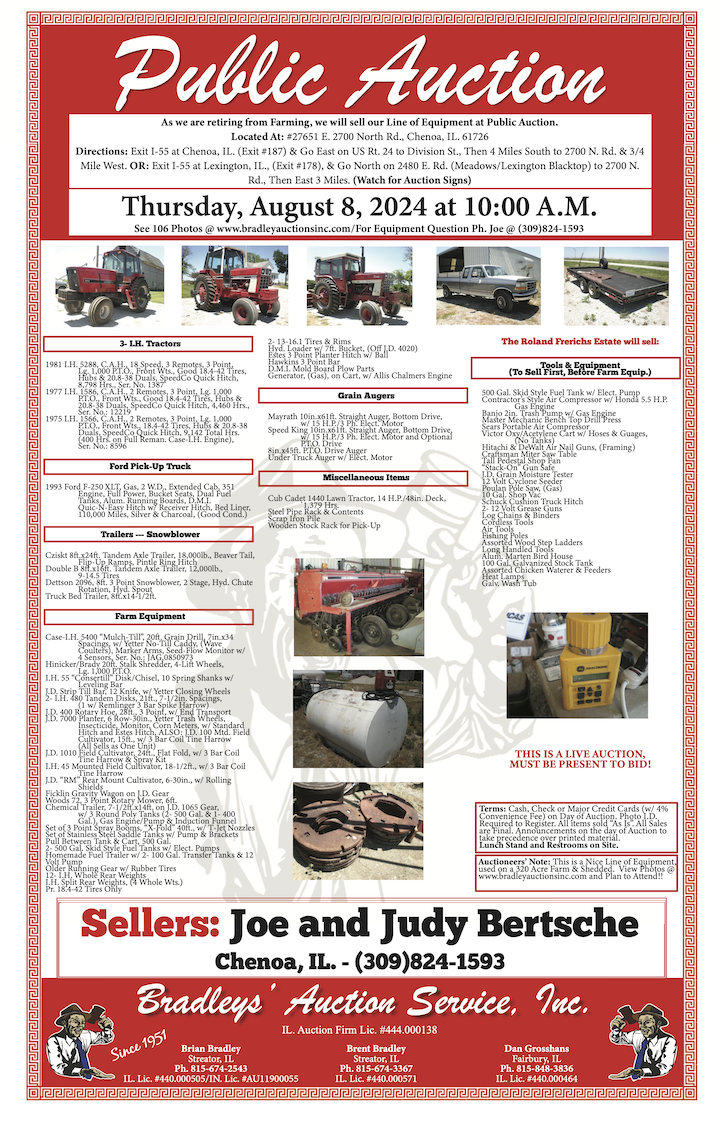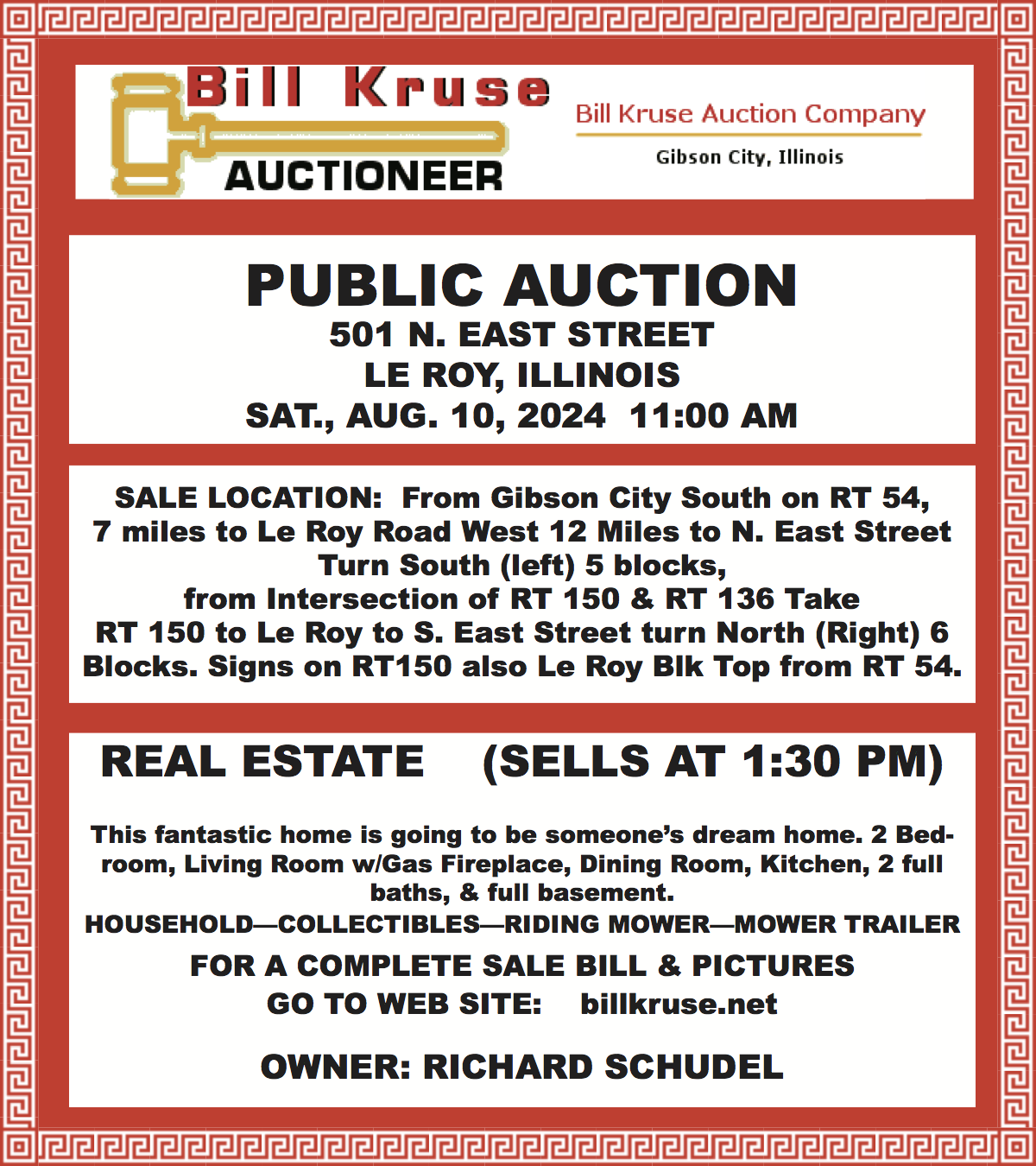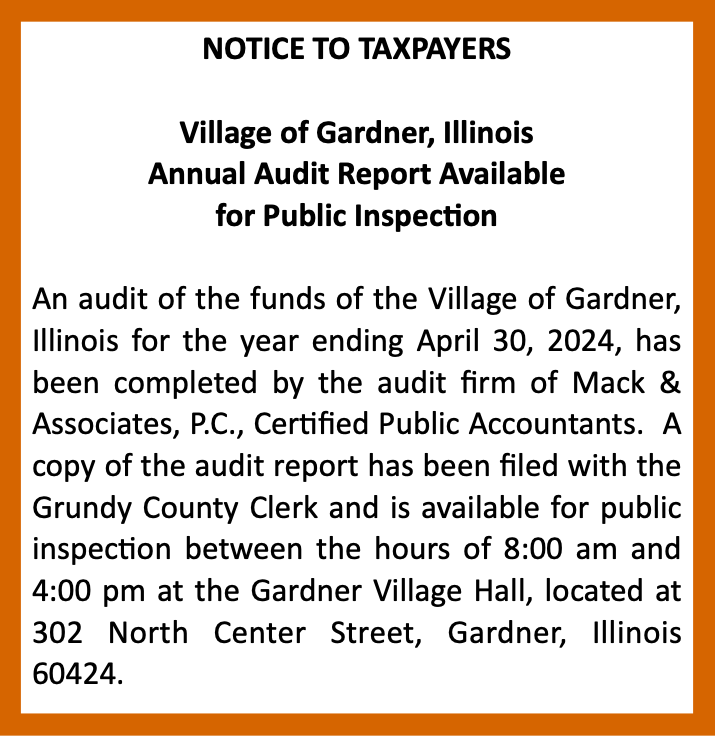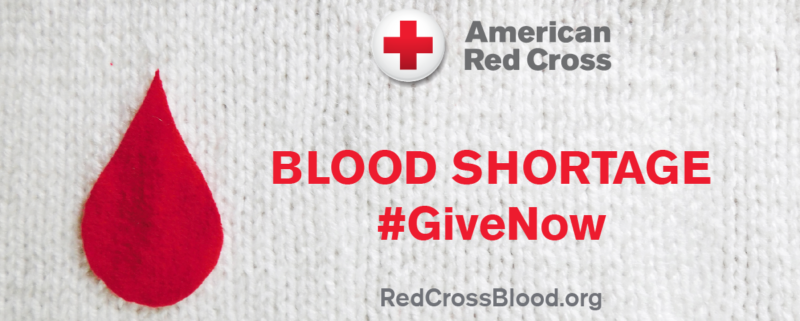Dartball mixes both to form a fun game
by Brandon LaChance
Every other Monday night from November to February, there are quite a few vehicles surrounding local churches.
The parking lots and side roads are not packed because of bible study or choir practice, it’s because of Dartball.
Dartball is a game combining darts and baseball as church teams of 5-9 guys stand 25-feet from the board featuring a baseball diamond. Each zone or section of the diamond signifies baseball terms players are trying to hit or trying not to hit with the darts they throw underhand.
Each Monday the churches meet to play the game, there are three games consisting of nine innings.
“I started playing seven years ago. My son (Mark Christenson) said, ‘Hey, our church (Dwight United Methodist Church) is going to form two teams for darts and we’re going to need some more players,’” said Tom Christenson, a Dwight resident who threw his first dart at the age of 55. “We had a young team and an older team. We had a great bunch of kids. We had six high school kids and some of them played basketball. Dartball is during the basketball season and they rarely missed a game. It amazed me.
“I really enjoyed it. They gave me a hard time and would say, ‘Why are you on a young team, you’re old.’ The scorekeepers can’t heckle or harass whoever is shooting, but the other guys can. It’s all in good fun. Some players and some teams are really talkative and some are not. It gets really competitive.”
Christenson usually aims for third base, which counts as a triple, but when the score is tied or the Dwight Methodist team is in need of a quick score, he’ll aim for the pitcher’s mound to hit a home run.
All of the bases and the home run circle are blue as home plate and first base are singles and second base is a double.
The white sections are a strike, red is an out (the thin red circle around the pitcher’s mound is called a horse collar and is an out), brown is a ball, green is foul, and the black circle between second and third is an error.
Grant Speece started playing Dartball when he took over at the First Congregational United Church four years ago. This season is his first as team captain.
“We have a lot of fun. We’re here more for the fun than anything else. We enjoy it,” Speece said. “We’re competitive, but it’s fun competitiveness. It’s a very good way to have fellowship with the other churches. I get to know folks from other churches because of Dartball that I wouldn’t get to know otherwise.”
On Jan. 17, Speece and First Congregational hosted Dwight Methodist during the eight-team, seven-week league, but every church does some traveling.
This season, First Congregational went on the road to Herscher (which has two teams/churches) and Zion Lutheran in Essex and will be at Dwight’s Emmanuel Lutheran on Feb. 7. Trinity Lutheran and New Life Assembly (both in Dwight) are also in the league.
“It’s the same distance for the dartboard. It’s not really a home-field advantage,” Speece said. “It’s set up the same at each church. One of the most fun things about it is going to all of the different churches. When it’s another church in Dwight, we all meet at that church.
“If it’s an out-of-town church, we all take the same vehicle. We go together as a group and it adds to the fun. It’s easier for all of us, too.”
The first Dartball board was produced by Apex in 1923. Dartball leagues were established in 1928 as the game was spread by “Johnny Appleseed types” as Lutheran ministers traveled with Dartball boards and bibles from one congregation to the next.
John Geschwind, a member of the Dwight Methodist team, has been playing since 1960.
“I went to the Methodist Church and they had a team going. Someone mentioned it to me and I decided to come throw some darts,” Geschwind said. “That’s how I got into it and I’ve never stopped. I enjoy playing this game. It’s good fellowship between guys at our church and with guys from other churches. We get to know each other. We’ve built some fun, friendly rivalries over the years.
“We don’t really play enough to get really good. It’s two weeks apart, so we don’t play consistently enough for anyone to get really good. We didn’t play at all last year because of Covid. Before then, we would have snacks or sandwiches at every church, but we haven’t brought it back because Covid is still here.”
The teams pay their dues of $25 (per team) at the beginning of the season to fund the prizes.
At the end of the regular season, the winning team receives two dozen darts (which used to be $33 a dozen but are now $53 a dozen as only one company makes them) and the second-place team earns one dozen.
The season finale is a round-robin tournament held at Emmanuel Lutheran on March 6 as four boards are set up for the eight teams to see who is the one-day best of the best.
The winner and the second-place team will both receive a dozen darts.
Brandon LaChance is a journalist at The Paper. He can be reached at (815) 876-7941, blachance20@gmail.com, or on Twitter @LaChanceWriter.






